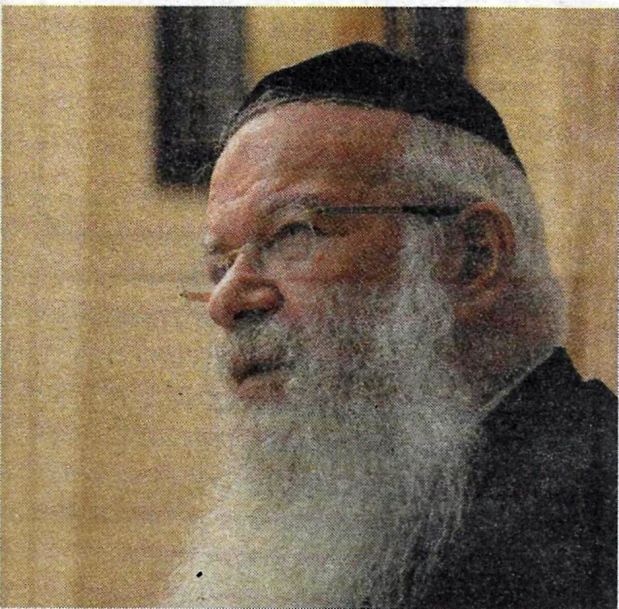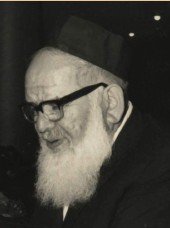HaRav Walkin

We are already in the second week of Elul, the month of Heavenly assistance in which Hashem calls out to us in love: Return to Me and I will return to you. To our chagrin, there are so many in whose hearts this call does not penetrate. They are plunged in hopelessness, sometimes not even realizing it, and think to themselves, "Haven't we tried already to change? Didn't I make good resolutions last year, only to fail, and despair? How can we succeed if we failed so miserably in the past?"
But they are mistaken, maintains the Mashgiach, HaRav Chaim Walkin. They fail to appreciate the power of man, of their own selves. If a person were to assess his own strength and recognize his own greatness, he would value every second, every single deed, and would realize the power of teshuva. Even he were to fall and stumble as he did in the past, he should nevertheless value the importance of each hour of teshuva and good deeds.
HaRav Chaim Walking tells us:
I often heard from my master and rebbe, HaRav Chaim Shmuelevitz, that were a person to know and understand the extent of the great power of responsibility and of its properties, if he only were to assume responsibility to fortify himself and improve, he would receive Heavenly assistance to persevere and succeed in all that he resolved.
But we must know that as great as is the power of taking responsibility and the encouragement which one can draw from it, in the same measure is the responsibility of a person who does not assume that same sense of responsibility to grow in Torah and piety.
HaRav Chaim used to repeatedly stress this marvelous principle in serving Hashem. When a person undertakes accountability, he is assisted from Above to stand up to the full challenge and burden which he took upon himself and even more than that, so long as he subjugates himself to the Creator. Hashem provides supernatural powers even beyond what one already possesses to enable him to execute his commitments.
He used to say to himself that he succeeded in understanding and reconciling a great part of the writings of the Rishonim and Acharonim in the various subjects in Shas because he felt the obligation and duty to explain their words and not leave them open-ended for future examination.
In this merit, he always saw how he was granted special powers to understand and explain their words in a manner that is absorbed deeply and incisively in one's heart.
HaRav Chaim Shmuelevitz zt"l

When we examine this in our daily lives, we see that at every step where one incorporates the sense of commitment towards Torah study, prayer and self-improvement, one is rewarded with incredible Siyata deShmaya to enable to fulfill these resolutions and ascend the ladder standing on the ground and reaching all the way to Heaven.
Many times in the years I spent with him, HaRav Chaim would stress what we say in tefillah: "He carries the sin and overlooks the crime." Chazal interpret this to mean that anyone who overlooks slights to himself will have his sins forgiven. He would say over and over: Forgive! Forgive! Stand down! Do not stand on your slights.
Once on the Holy Day itself he told us about the abandoned wife who was with them in the shelter during the war and she said to Hashem: "I will forgive my husband for all the years of abandonment, that he left me alone with young children... that You with Your mercy will overlook our sins." He was crying while telling the story.
I remember that in 5729 I went once to my rebbe and he read the posuk, "And he went out to his brothers and he saw their suffering. And he commented,"Moshe Rabbenu grew up. But what was his greatness? How did his greatness express itself? The Torah tells us that he saw their suffering. Greatness is not just sitting in a room alone and learning Torah even the most ethereal topics. Greatness is measured by seeing their suffering."
I must say that this stress on middos and bein odom lechavero was not just Rebbe Chaim. This was the general atmosphere in Mir. Lev tov and middos tovos. Rav Beinish Finkel went out of his way to help people and to give them a good feeling.




